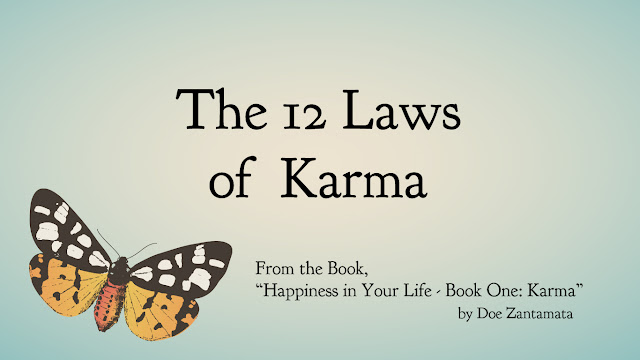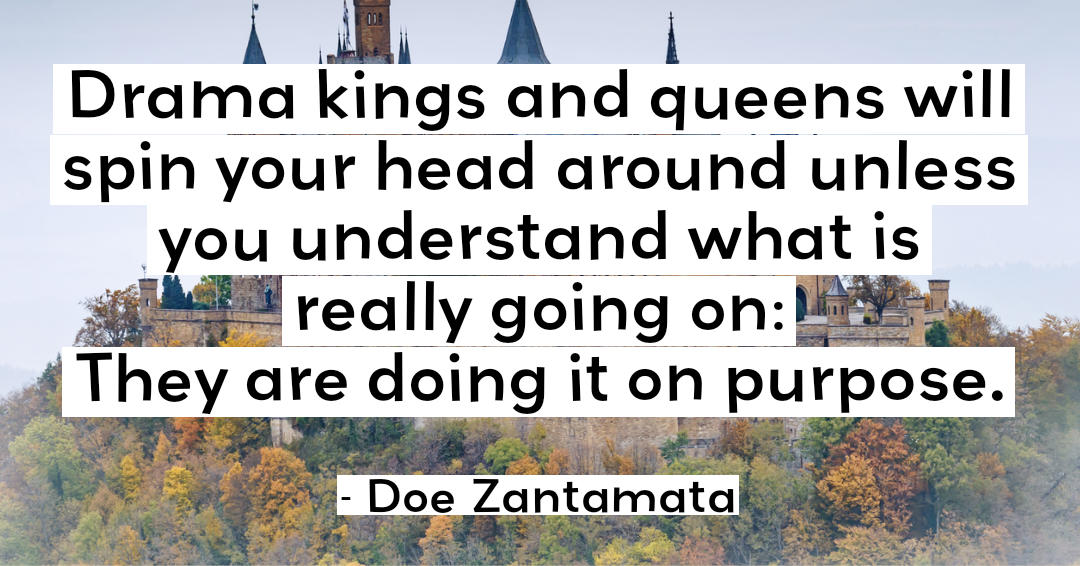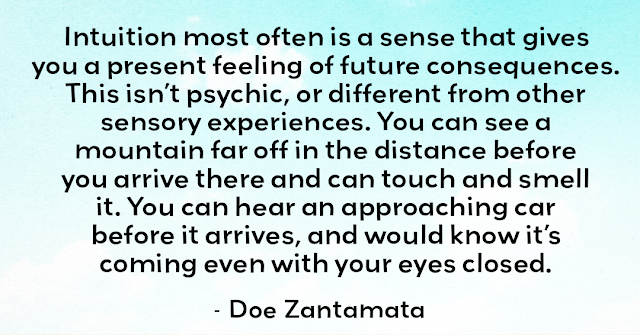The deeper you look, the better the treasure.
There is an added benefit to doing this. We only accept the treatment from the outside world that we believe we deserve. We believe we deserve what we tell ourselves. So as you develop acceptance and self-esteem through this process, you will be less likely to accept anything less from the outside world. This doesn’t mean that you’ll suddenly want to scrap with everyone who puts you down in the way that you used to. It means that you will feel more comfortable in expressing yourself, calmly standing up for yourself, or disagreeing when someone puts you down or belittles you. You will gradually teach those around you to accept and treat you better as you teach yourself.
By Doe Zantamata
People often talk about needing to “find themselves,” but
really, we’re right here all along.
The trick isn’t to buy a sports car, or go to the Himalayas
and sit on a mountain, but to instead make a new commitment to getting to
really know you again.
The way to do this is to listen to your thoughts as much as
possible throughout each day.
For most people, thoughts just play on auto-play in the
background for most of the day, and aren’t noticed individually so much as they
are felt over the long term.
Sadness, anger, resentment…these things build up. If you ask
a person “why” they are always sad, angry, or resentful at people, often they
say in all honesty that they don’t even know. It’s just this massive, certain
feeling that is there. Part of the process of healing is to unravel all those
constant thoughts and make sense of them. Then, discard or change the ones that
are not true but keep persisting and causing the view of the self and/or world
to be skewed.
What do you think if you drop something or make a mistake?
Do you think, or even say out loud, “stupid” or some other insult? Or how about
when someone else, a co-worker, spouse, or child drops something or makes a mistake?
Are they assigned a label: careless, ungrateful, clumsy, or something else
besides that they just made a
mistake?
If we hear something around 30 times, we believe it, and
it’s hard to believe anything else. If we do something around 1000 times, it
becomes an unconscious habit, a natural response that we’re not even aware of.
Believing is accepting, so if you are constantly having any
negative thoughts that drove you to accept things that just aren’t true, then
the repetition of those thoughts on a daily basis affirms them over and over
again.
Have you ever heard of “affirmations?” They’re those direct,
positive thoughts and statements that a lot of the self-help and motivation
world advise to do and use every day. Maybe taped to the bathroom mirror, or
said aloud, or read on fancy store bought cards with pretty pictures. While
they may seem insignificant, they are actually incredibly powerful tools that
help to change and re-affirm new, positive statements and break the habits of
the old ones.
- Listen to your thoughts as much as possible as you go throughout the day. If you forget and then remember something, if you step on a scale, or if you are doing something and it is frustrating as it is not working how it should (computers!).
- Identify the labels that you assign yourself. Also, don’t expect that you’re going to be perfectly aware (and remember to be so) from day one, or that you’ll have this whole thing covered in one, single day. This is a new thing. You’re not supposed to be an expert at new things. Be patient, but persistent.
- Write down those labels in a brand new journal or notepad. Be as honest as possible, this is just for you. As they say, “you can’t change what you don’t acknowledge.”
- Think about each one and the situation or situations it sprang up in. Are you being over critical of yourself? Would you assign those labels to someone else who did the same? How do those labels serve you? Do they take away your confidence, do they discourage you, do they bring you down?
- Create some affirmations. The easiest way to do this is to either take the opposite of the label, or just make the label neutral. “I am clumsy” can turn into “I am graceful,” or if you’re not quite ready to make that leap, then “I drop things or trip sometimes, but that doesn’t mean anything except that I drop things or trip sometimes. Everyone does.” The neutral shift allows you to accept yourself, while the opposite affirmation shift allows you to change that inner voice to one of upliftment instead of criticism.
- Make a new list of the neutral or positive affirmations, either in the journal or on a sheet of paper that’s placed somewhere where you can read it every day.
- Read over the list in the morning. Add it to a habit that’s already formed, like when you have your coffee or when you brush your teeth. You should feel just a little lighter and taller deep inside when you read them consciously and truly believe every word.
- Catch yourself. Throughout the day, be aware of your inner feelings. If they sink after something, think of what has just happened and if you’ve accidentally tossed one of those labels in there. If yes, then deliberately remember and think of the opposite or neutral affirmation. This is tough at first, but gets easier and easier.
There is an added benefit to doing this. We only accept the treatment from the outside world that we believe we deserve. We believe we deserve what we tell ourselves. So as you develop acceptance and self-esteem through this process, you will be less likely to accept anything less from the outside world. This doesn’t mean that you’ll suddenly want to scrap with everyone who puts you down in the way that you used to. It means that you will feel more comfortable in expressing yourself, calmly standing up for yourself, or disagreeing when someone puts you down or belittles you. You will gradually teach those around you to accept and treat you better as you teach yourself.
Self love is natural. Self esteem
is natural. Self acceptance is natural. Those around you who have none of these
may mistake them for a big ego, but they are the opposite.
A big ego is a mark of someone who
actually doesn’t love themselves very much, and so must constantly look for
others to overpower or feel “better than” in order to maintain that big ego.
Self love and self acceptance differ in that a person who practices these
things will also be more likely to accept and love others as they are, and even
correct others when they put themselves down. Big ego overpowers others, self
love empowers others. Huge difference.
Again, the biggest thing to
remember is that this is a process. Think of it as climbing a mountain. You
take steps every day. You are where you are. You don’t get frustrated that
you’re not at the top yet, because you know that every day, you’re a little
closer. Maybe it takes a month, maybe it takes a year, maybe it takes a few
years. No matter how long it takes, it will be worth it. Just keep going.
Author of "Happiness in Your Life - Book One: Karma"
Discover the true patterns of your actions versus the worlds consequences that are limiting you from happiness:













Wonderful - thank you for a brilliant article :-)
ReplyDeleteThere is great truth in this and we have to train ourselves in that the self-narratives we possess can be changed for the better.
ReplyDelete